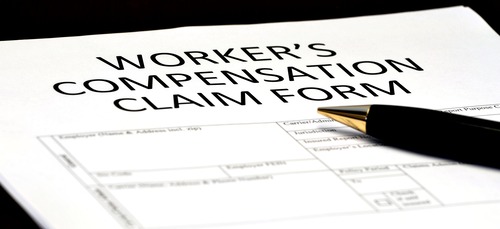The Benefits – And Costs – Of Ridesharing
- Uber Accidents
For many people, the use of ridesharing services such as Uber and Lyft makes a lot of sense. It is a great way to save some money, contribute to a lower environmental cost due to auto emissions, and, for many people, a way to avoid a drunk driving charge after a late night at the club. These benefits are sure to encourage more people to use these services as their popularity continues to increase. With the emergence and growth of ridesharing services, however, the question of liability in the event of an accident while using these services has gained some attention as well. An interesting yet sobering story about a recent auto accident involving an Uber vehicle that resulted in the death of a passenger highlights this issue. In this case, a driver who was allegedly under the influence of alcohol crashed into an Uber vehicle. Three passengers were injured and, tragically, one passenger died. According to the article, the deceased passenger’s family has filed a lawsuit against the ridesharing company.
Where Does Liability Lie?
The question of liability in a case such as this is complicated. With these popular ridesharing companies, drivers use their own vehicles to transport passengers in the same way as many taxi drivers do. Florida law requires anyone who operates a taxi (or limo, or other transportation for hire) to obtain coverage through a motor vehicle liability policy. However, many individual/personal policies specifically state a ‘livery’ exclusion for vehicles that are being used in a ‘for hire’ situation. A ridesharing driver, unlike a driver in a carpool that shares expenses, fits this description. Ridesharing drivers need to ensure there are no gaps in coverage. In many cases, a ridesharing driver may have his or her own insurance policy that provides coverage in addition to coverage offered by the ridesharing company itself. In that case, the question of which insurance company is liable arises. Sometimes the ridesharing company’s insurance coverage depends on at exactly what point an accident occurs. One important distinction about which insurance company is liable may be whether the ridesharing driver is on his or her way to pick up a passenger or whether the passenger has entered the ridesharing vehicle at the time an accident occurs.
Florida Law Sets Limits On Employer-Provided Coverage
Florida Code Section 768.091 sets forth the liability limits of an employer of a ridesharing service and states that employers are not liable for any injuries or damages resulting from an accident between the ridesharing driver’s home and their place of employment unless the vehicle is owned by the employer instead of the ridesharing driver. The next question: what is considered a place of employment in the ridesharing business? Is it the location where the driver is at when the service is requested? Or is it the location where the passenger is picked up and first enters the vehicle? This question has not yet been decisively answered.
Personal Insurance Policy Coverage Versus Employer-Provided Coverage
Last year, the Property Casualty Insurers Association of America (PCI) commended the Florida House Subcommittee on Transportation and Ports’ efforts to bring attention to and address the issue of coverage gaps associated with ridesharing. They noted the personal auto policy’s common ‘livery’ exclusion and the fact that personal insurance policies deny coverage in the event of accidents during a driver’s use of their vehicle while ridesharing. It noted the importance of closing the gaps and ensuring protection for both drivers and passengers alike while engaged in ridesharing. Some private insurance companies, such as Geico, have started offering a hybrid policy that replaces a standard personal policy. With respect to employer-provided insurance, early last year it was reported that Florida’s insurance regulators have determined that one of the popular ridesharing services has coverage that satisfies its insurance requirements. In their investigation of the issue, they noted that Uber’s policy is one that has coverage limits that far exceed the state law requirements for bodily injury, property damage, and per incident of $125,000, $50,000, and $250,000 respectively. By contrast, Uber’s policy has policy limits for liability coverage, uninsured and underinsured motorist coverage of $1 million each, which is the current standard for taxis and limos.
Seek Professional Legal Advice
If you or someone you love has been injured in an auto accident, you need to be able to turn to someone you can trust to give you truthful, accurate, and straightforward advice about your rights and responsibilities. An experienced legal professional can help you by reviewing the facts of your case and providing you with competent and compassionate advice about all of the options available to you. They will work hard to guide you towards making informed decisions about your legal matter and proceeding with your case. Contact a Miami Auto Accident Attorney today to get information about how to get started on the road to justice.






